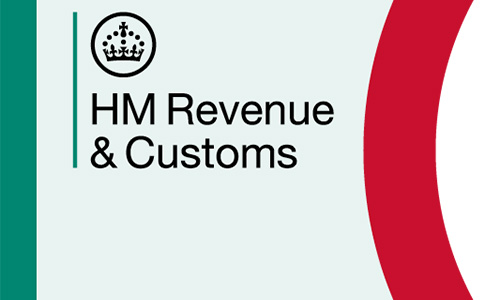Advice from HMRC: Becoming a money mule is a big mistake

More and more young people are victims of fraud. One of the main enablers of this are money mules – people who let someone else use their bank account to transfer money.
Criminals often recruit students as money mules. Why? Usually, to process cash they’ve got their hands on illegally, such as by stealing. In exchange, the money mule gets to keep a cut.
It’s a small price to pay to protect the criminal, so any consequences hit the mule instead of them.
An offer of quick cash might seem great at the time. But if you get caught, you could end up with a criminal record for money laundering.
This a serious crime that could land you in prison for up to 14 years.
There’s also likely to be a huge impact on your mental health, family and ability to trust people. So don’t risk your future. Steer clear of unsolicited offers to make easy money while studying. It’s simply not worth it.
Did you know...
6 in 10 money mules are under 30 years old?
Most are recruited between the ages of 17 and 24 – either online, in person, or even through friends and family.
How can I protect myself?
- Be suspicious of job adverts that offer the chance to earn quick and easy money. Stick to reputable job sites and remember that if something looks too good to be true, then it probably is.
- Don’t sign up for any opportunity without undertaking some proper research. For example, Google any prospective employer, do they have an online presence? Are the contact details legitimate? Is it based overseas?
- Don’t engage with any online posts offering large sums of money.
- Don’t accept message requests from people you don’t know, and if you receive a message with a link to click from a friend, speak to them in person before you respond.
- Don’t share bank and personal details with anyone that you don’t know or trust – even among friends or family. If someone asks to ‘borrow’ your bank account, say no.
- Always remember that if you aren’t sure about the source of the money, it could have come from criminal activity, and you could unwittingly be laundering money and end up with a criminal conviction.
What should I do?
If you or someone you know has been approached, break off all contact, don’t receive or move any money, and ask for advice from someone you trust. Criminals operate in silence – by talking about it, you are protecting others.
Report it by calling local Police on 101 or 999 in an emergency.
Contact the HMRC Fraud Hotline by calling 0800 788 887 or online at https://www.gov.uk/report-tax-fraud. Please quote ref: IFMM24. You do not have to give your name or contact details unless you want to.
Contact the independent charity CrimeStoppers 100% anonymously online via this form on the Crime Stoppers UK webpage or by calling 0800 555 111. Please quote ref: IFMM24.
If you see it online, click the button to report it to the social media companies to get it taken down.
If you think someone you know is already involved, go to the National Crime Agency (NCA) website for advice.
If criminals have already got your personal information report it to Action Fraud National Fraud & Cyber Crime Reporting Centre on 0300 123 2040.
Additional information
- We Fight Fraud “Crooks on Campus”
- BBC iPlayer Scam Stories - The Money Drop
- National Crime Agency
For more information please contact the Corporate Communications Team.


/prod01/wlvacuk/media/departments/digital-content-and-communications/images-2024/240328-Varsity-Line-Up-Resized.jpg)
/prod01/wlvacuk/media/departments/digital-content-and-communications/images-18-19/220325-Engineers_teach_thumbail.jpg)
/prod01/wlvacuk/media/departments/digital-content-and-communications/images-2024/240515-Spencer-Jones-Award-Resized.jpg)
/prod01/wlvacuk/media/departments/digital-content-and-communications/images-2024/240320-Uzbekistan-Resized.jpg)
/prod01/wlvacuk/media/departments/digital-content-and-communications/images-2024/240229-The-Link-Resized.jpg)
/prod01/wlvacuk/media/departments/digital-content-and-communications/images-2024/240516-Andy-Gibson-Resized.jpg)